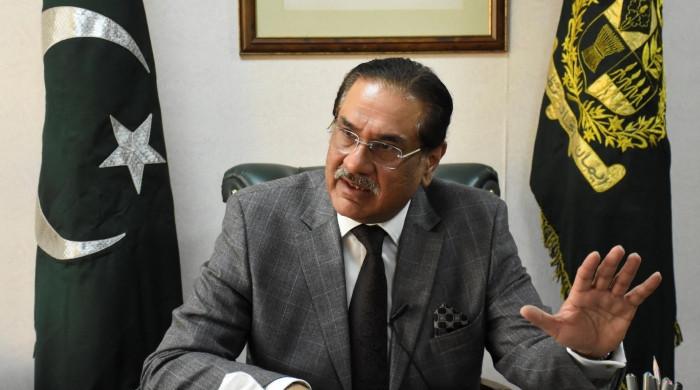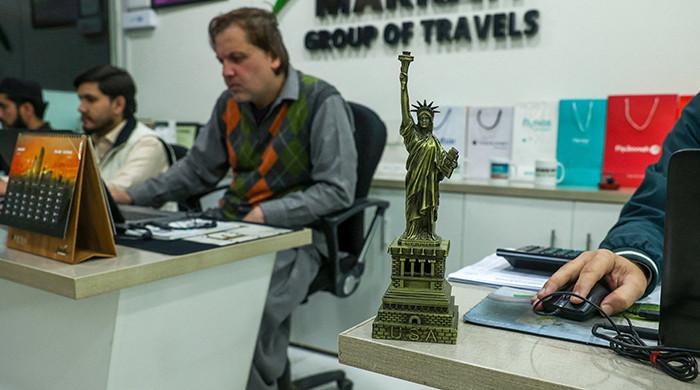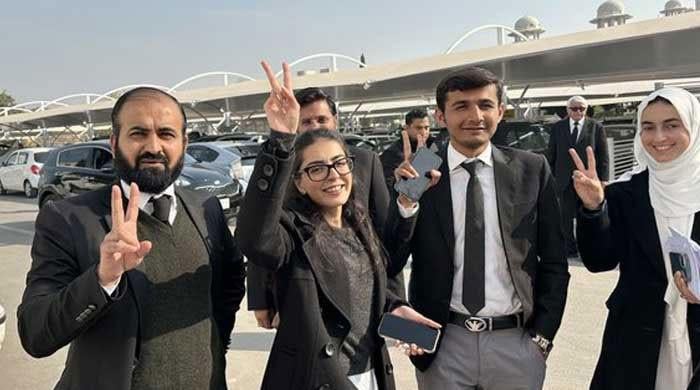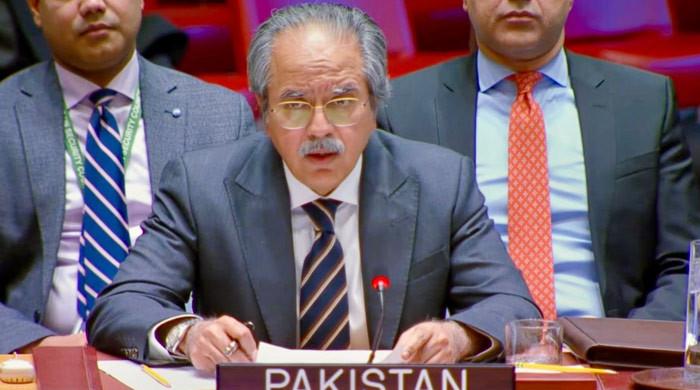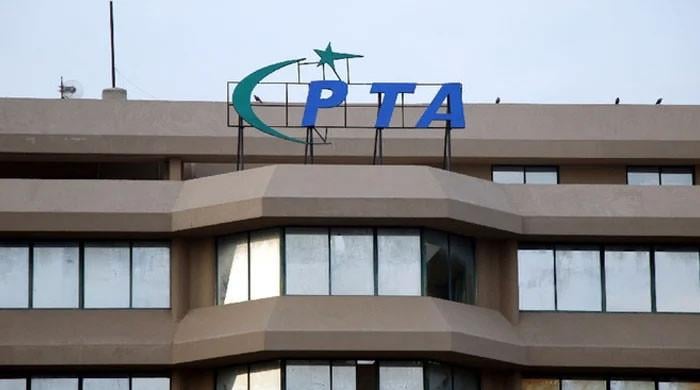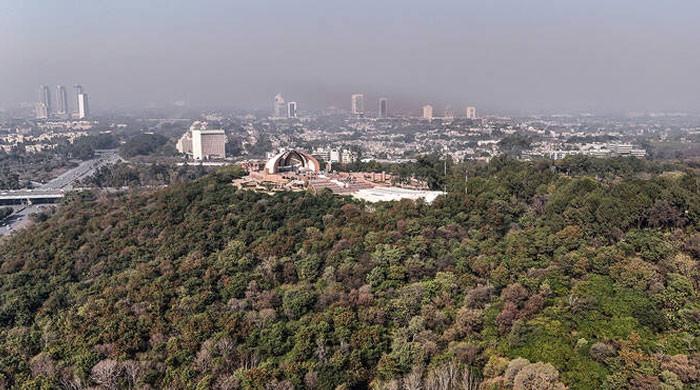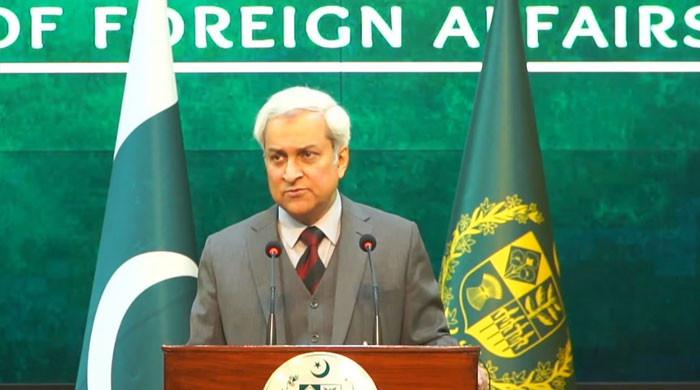Carefully consider NAB chairman appointment, CJP Bandial advises attorney-general
Chief Justice of Pakistan Justice Umar Ata Bandial hears suo motu notice case on apprehension of persons in authority undermining criminal justice system
June 03, 2022
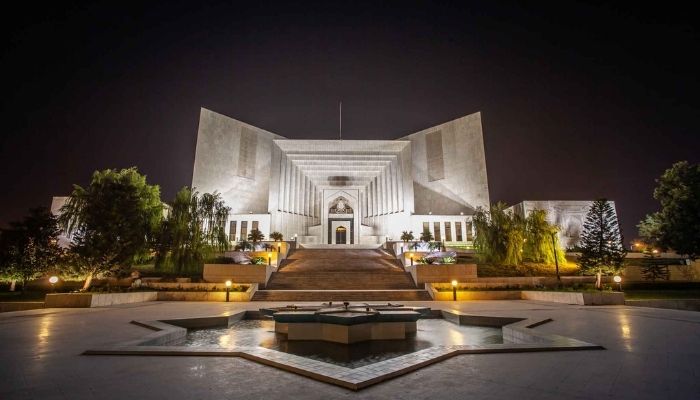
- CJP Justice Umar Ata Bandial asks AGP to carefully consider matter of NAB chairman appointment.
- NAB should not tolerate pressure to bring a case without merit, says CJP.
- SC hears suo motu notice case on apprehension of persons in authority undermining criminal justice system.
ISLAMABAD: Chief Justice of Pakistan Justice Umar Ata Bandial advised the Attorney-General of Pakistan (AGP) Ashtar Ausaf to carefully consider the appointment of the National Accountability Bureau (NAB) chairman on Friday.
The Supreme Court was hearing a suo motu notice case on the apprehension of persons in authority undermining the criminal justice system.
During the hearing, on the issue of the appointment of the NAB chairman, the CJP remarked that one should not be influenced by the opinion of anyone outside the system over the appointment of the NAB chairman.
The CJP advised the AGP that the NAB chairman should be a competent and trustworthy person, and therefore, his appointment should be made with careful consideration.
CJP Bandial stated that the NAB should not tolerate pressure to bring a case without merit. "If NAB is under pressure, write to us. That does not imply that you must pick and drop any case you want," he said.
The CJP said there was a high-profile drug case which made headlines and when the investigating officer was asked about it, he had commented that it was a bogus case.
ECL rule changes
The CJP questioned the AGP regarding the process for removing names from the Exit Control List (ECL) at the start of the hearing.
Justice Aijaz ul Hasan inquired as to why 444 names were removed from the ECL so swiftly.
"There is no mention of the revisions being retroactively applied. How may ministers whose names appear on the ECL choose to have them removed?"
CJP Bandial pointed out that "the court placed Khawaja Saad Rafique's name [on the list]," to which the AGP responded that Rafique was not present at the cabinet meeting that approved the amendments.
"The [amended] guidelines have been accepted by Khawaja Saad Rafique, according to the records. Shouldn't ministers have kept their distance from the situation?" Justice Akhtar questioned.
"How is it possible to use a government decision for personal gain? Is there a code of ethics for ministers when it comes to personal matters?" he asked.
According to the AGP, a personal case was not sent to the minister in question because of the code of conduct. Justice Akhtar was perplexed as to why the code of conduct had not been implemented.
The attorney general, on the other hand, contended that if the prime minister's name was on the ECL, the cabinet could not make any decisions.
"It would be appropriate to construct such a government in which no one's name appears on the ECL," Justice Akhtar observed.
The court was not considering the case to penalise anyone, according to the CJP.
Justice Akhtar inquired as to who made the decision to apply the amendments retroactively, to which the AGP responded that the decision was made by a subcommittee.
The AGP said, "In my opinion, the ECL should not exist." The CJP, on the other hand, stated that the court would not consider personal opinions in the case.
"When exerting power, honesty, justice, and transparency should be considered," the CJP continued.
According to AGP Ausaf, every citizen's right to freedom of movement and to travel abroad is protected by the Constitution, and a person's name cannot be placed on the ECL solely because of ongoing investigations by the National Accountability Bureau (NAB) and the Federal Investigation Agency (FIA).
According to him, the federal government considers a person's right to free movement as well as the allegations levelled against him before putting his name on the ECL.
"After completing all legal aspects, the government modified the ECL Rules. The revisions would be imposed retroactively, according to the cabinet. The federal government has the authority to amend the ECL Rules."
The names of cabinet members were removed from the ECL, he informed the court, so that the government could function properly. "There is no law that says you have to talk to the NAB before removing the names."
Additionally, Justice Akhtar questioned whether an amendment should be implemented if it benefits the families and friends of those who are doing it.
The court subsequently deferred the suo moto hearing until June 14.




